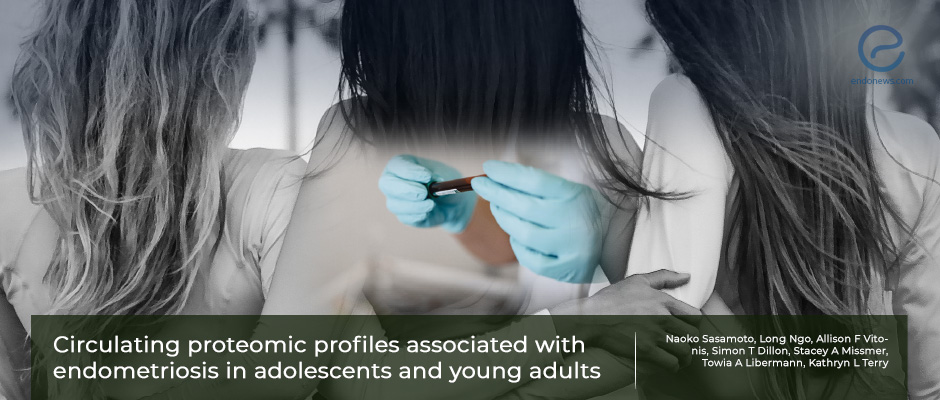Research Identifies Blood Proteins Associated With Endometriosis in Adolescents
Aug 12, 2022
This finding may help better understand the pathology and pathogenesis of the disease.
Key Points
Highlights:
- A new study identified 63 blood proteins that are associated with endometriosis in adolescents.
- These proteins are related to angiogenesis and cell migration.
Importance:
- This is the first study that examined circulating proteins in the blood of adolescents with endometriosis
- This knowledge can help better understand the early stages of the disease and develop new therapies in the future.
What's done here:
Researchers conducted a cross-sectional analysis of 142 adolescents with endometriosis and 74 healthy controls.
Key results:
- 63 proteins related to angiogenesis and cell migration were enriched and more active in the blood of adolescents with endometriosis compared to healthy controls.
- Pathways related to immune cell migration and inflammation were upregulated in vascularized lesions, while they were downregulated in white, blue/black, and brown lesions.
Limitations:
- The sample size was quite small so individual proteins associated with endometriosis could not be identified.
- The presence or absence of multiple lesion colors could also not be explored.
Lay Summary
Proteins related to angiogenesis or the formation of new blood vessels and cellular migration are enriched and more active in the blood of adolescents with endometriosis compared to healthy controls. These are the findings of a new study published in the scientific journal Human Reproduction.
According to the authors of the study, these results provide new information that can help better understand the biological processes associated with endometriosis in its early stages and could help researchers develop new treatments for the disease in the future.
Even though more than half of endometriosis patients say that their symptoms started in adolescence, there is still very little known about the characteristics of the disease in adolescents.
Here, a team of researchers led by Dr. Kathryn L Terry conducted a cross-sectional analysis on 142 patients with endometriosis confirmed by laparoscopy and 74 controls.
Using a proteomics discovery platform called SOMAscan, the team measured the levels of 1,305 proteins in the blood of the patients and the controls. This way, they identified 63 proteins that were associated with endometriosis. These were proteins that were related to angiogenesis and cell migration.
The researchers also examined proteins and pathways associated with the color of endometrial lesions and found that in lesions that were vascularized, pathways related to immune cell migration and inflammation were upregulated. On the contrary, these pathways were downregulated in white, blue/black, and brown lesions.
Now, these results should be validated in other patients and mechanistic studies should be conducted to better understand the characteristics of the disease in adolescents, the researchers say.
Research Source: https://pubmed.ncbi.nlm.nih.gov/35770801/
angiogenesis cell migration adolescent endometriosis proteomics

